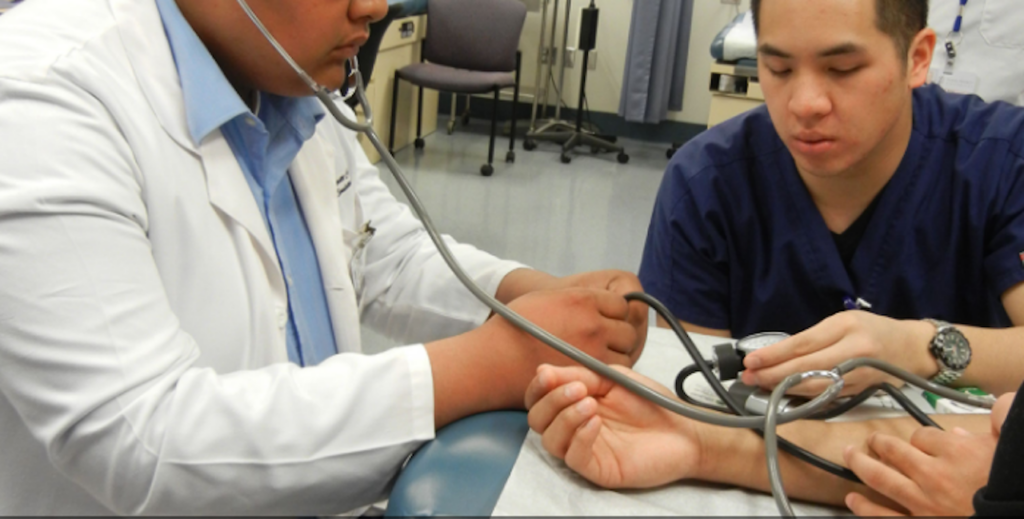Ensuring schools are adequately preparing students for careers is just as important as ensuring they prepare students for college, says a new paper that proposes districts add specific career-readiness measures, such as the number of students who complete work-based learning programs, to their accountability plans to the public.
“Developing strong, supportive pathways that incorporate both college- and career-ready skills is our best bet for ensuring students will find their way to a productive future,” said the paper, released Tuesday by the Stanford Center for Opportunity Policy in Education, or SCOPE.
The report provides three recommendations for career preparation measures that schools should include in their Local Control and Accountability Plans, or LCAPs. The plans, required under the state’s Local Control Funding Formula for school districts, require districts to outline how they will meet eight educational priority areas mandated by the state. One of those areas requires districts to ensure that all students have access to classes preparing them for college and careers.
The report’s authors based their recommendations on a review of college and career measures in a number of states. The paper recommends that accountability plans include:
- The proportion of students who complete career preparation programs that blend college-preparatory academics with workplace training;
- The proportion of students who complete work-based learning experiences; and
- The proportion of students who demonstrate they have a set of skills and knowledge in a certain field, such as those who obtain industry-approved work certificates upon high school graduation, or those who earn “virtual badges” certifying they are proficient in certain areas.
Christopher Cabaldon, executive director of the Linked Learning Alliance, which promotes college-preparatory work-based learning programs in schools, said the paper can provide clarity to state officials who are struggling with the best way to define career readiness.
“This is really the first comprehensive scan of usable measures of college and career readiness that could be deployed, whether in (accountability plans) or at the state level,” Cabaldon said.
Linda Darling-Hammond, the report’s co-author and faculty director of the Stanford Center for Opportunity Policy in Education, is expected to discuss the paper Tuesday before the Public Schools Accountability Act Advisory Committee. The committee is working to incorporate measures of college and career preparation into the Academic Performance Index for schools.
Also Tuesday, the committee will hear a final report from the Educational Policy Improvement Center in Oregon, which has been advising the committee on developing an effective gauge of college and career readiness. The full meeting agenda can be found here.
The SCOPE report does not address the role college and career measures might play in the API school rating system, which has previously been based primarily on student test scores. State Board President Michael Kirst has said he thinks the state should move away from the API as the sole measure of school performance in favor of a system more akin to a “dashboard” that provides a wider range of information.
“The LCAP is going to be the primary accountability vehicle in the state,” Darling-Hammond said. “There are people who think the API is likely to give way to more of a multiple measurement system, which the LCAP is the first emerging representation of.”
To get more reports like this one, click here to sign up for EdSource’s no-cost daily email on latest developments in education.
